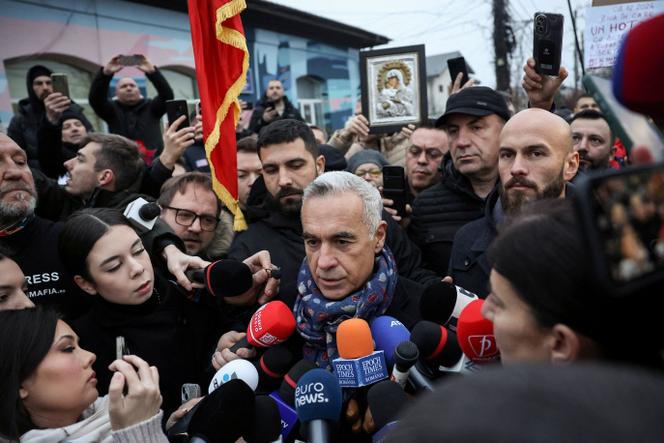


Mogosoaia, Sunday, December 8, 7 am: In this upmarket suburb of Bucharest, polling stations were due to open for the second round of Romania's presidential election. However, just like all those across the country, they remained closed. Two days earlier, the country's Constitutional Court had annulled the election, plunging Romania into an unprecedented political crisis. Despite this, far-right candidate and pro-Russian politician Calin Georgescu turned up to a polling station, surrounded by his supporters: "I call on Romanians to vote calmly. I want to vote in the name of democracy. Those in power are sowing panic, but no one will be able to stop the Romanian people," he declared, speaking to television cameras.
The 62-year-old candidate, who had burst into the limelight on the social media platform TikTok, surprised everyone by coming out on top in the first round on November 24, with 23% of the vote. His meteoric rise had been based on an aggressive social media campaign, but also, according to intelligence reports, on massive foreign interference. On Wednesday, December 4, the outgoing president, Klaus Iohannis, revealed a report indicating that large-scale manipulation had been orchestrated by state actors with hostile stances toward NATO.
The Constitutional Court justified the election's annulment by citing breaches of financing transparency and violations of the freedom to vote via disinformation campaigns. "The freedom to vote was compromised due to massive disinformation carried out through aggressive promotion in violation of the electoral law, as well as abusive exploitation of social media algorithms," stated the Court in its justifying arguments.
While the electoral race has been indefinitely suspended – probably until the spring of 2025 – the battle is now raging in the courts. George Simion, leader of the ultra-nationalist Alliance for the Unity of Romanians (AUR) party, has filed a complaint with the High Court of Cassation and Justice to challenge the Constitutional Court's decision. He also plans to appeal to the Venice Commission (a Council of Europe advisory body), the Organization for Security and Cooperation in Europe (OSCE) and the Group of States against Corruption (GRECO) to denounce what he has described as a dangerous precedent.
The country's ultranationalist and extremist parties, which garnered over 32% of the vote in the December 1 parliamentary elections, have called for the electoral process to be immediately restarted. However, President Iohannis has insisted that the newly-elected Parliament form a new government before setting a date for the presidential election.
You have 42.15% of this article left to read. The rest is for subscribers only.
